A Harmonic Analysis is then used to make vertical and horizontal scale selection for improvisation and chord substitution.
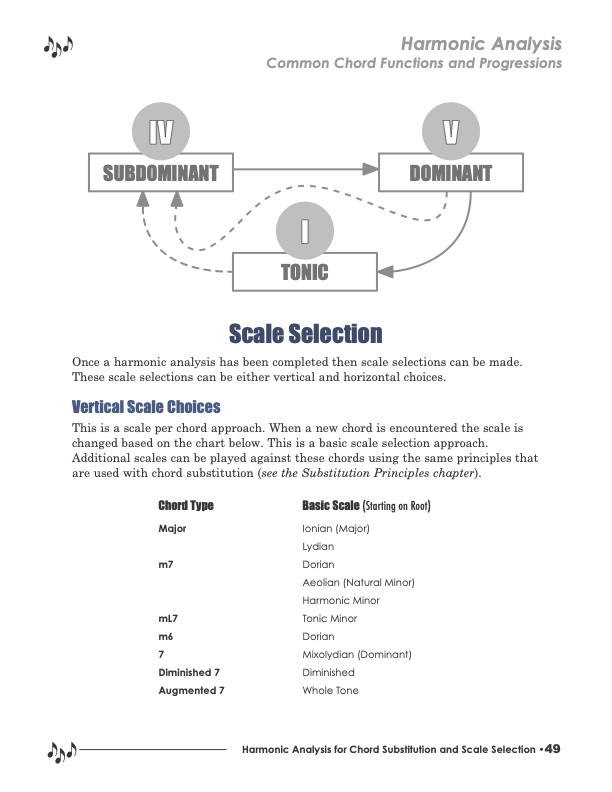
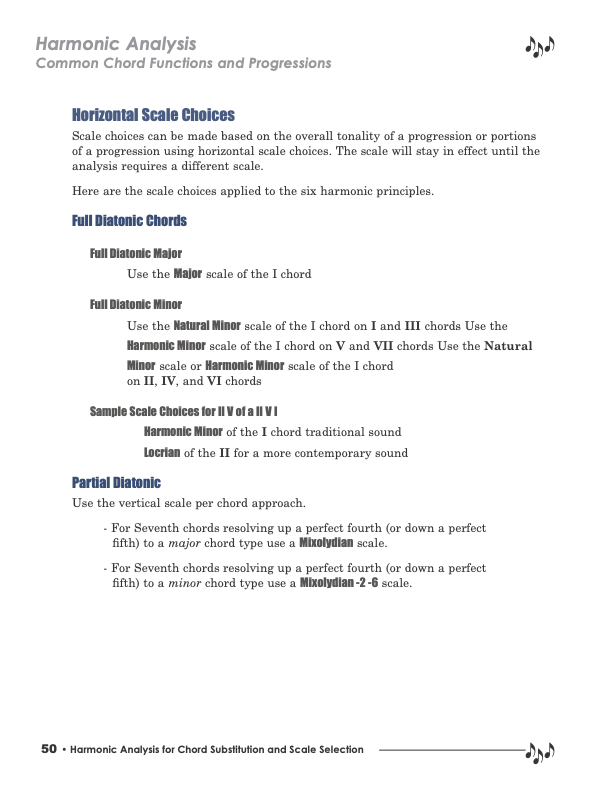
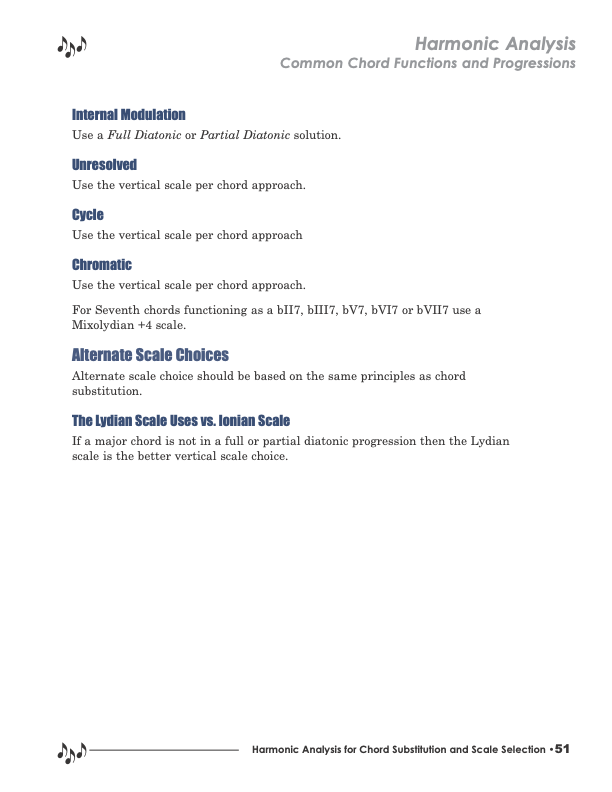
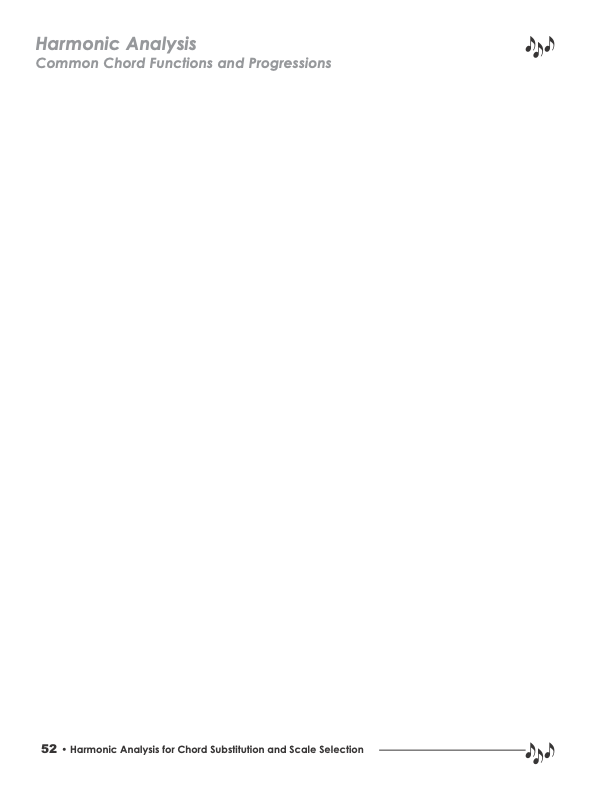




Harmonic Analysis is the understanding of the functional sequence of chords. It is the process used to analyze the harmonic structure of a progression, song or composition. This analysis is then used to make scale selections for improvisation and chord substitution.
This lesson covers the vertical and horizontal scale selection.
Available for Premium Site Access Plans Only
Once a harmonic analysis has been completed then scale selections can be made. These scale selections can be either vertical and horizontal choices.
Vertical Scale Choice
This is a scale per chord approach. When a new chord is encountered the scale is changed based on the chart below. This is a basic scale selection approach. Additional scales can be played against these chords using the same principles that are used with chord substitution (see the Substitution Principles chapter).
Chord Type
Basic Scales
(Starting on Root)
maj
maj7
Ionian(Major)
Lydian (Major)
Major Pentatonic
minor
m7
Dorian
Aeolian (Natural Minor)
Harmonic Minor
Minor Pentatonic
Harmonic Analysis is the understanding of the functional sequence of chords. It is the process used to analyze the harmonic structure of a progression, song or composition. This analysis is then used to make scale selections for improvisation and chord substitution.
This lesson covers the vertical and horizontal scale selection.
Available for Premium Site Access Plans Only
Once a harmonic analysis has been completed then scale selections can be made. These scale selections can be either vertical and horizontal choices.
Vertical Scale Choice
This is a scale per chord approach. When a new chord is encountered the scale is changed based on the chart below. This is a basic scale selection approach. Additional scales can be played against these chords using the same principles that are used with chord substitution (see the Substitution Principles chapter).
Chord Type
Basic Scales
(Starting on Root)
maj
maj7
Ionian(Major)
Lydian (Major)
Major Pentatonic
minor
m7
Dorian
Aeolian (Natural Minor)
Harmonic Minor
Minor Pentatonic
Harmonic Analysis - Scale Selection
More Vertical Scale Choices
minor/major 7 (mL7)
Tonic Minor
m6
Dorian
Minor Pentatonic
7
Mixolydian (Dominant)
Major Pentatonic
dim
dim 7
Diminished
aug
aug 7
Whole Tone
Horizontal Scale Choices
Scale choices can be made based on the overall tonality of a progression or portions of a progression using horizontal scale choices. The scale will stay in effect until the analysis requires a different scale.
Here are the scale choices applied to the Six Harmonic Principles.
Full Diatonic Chords
Full Diatonic Major
- Use the Major scale of the I chord
Full Diatonic Minor
- Use the Natural Minor scale of the I chord on I and III chords
- Use the Harmonic Minor scale of the I chord on V and VII chords
- Use the Natural Minor scale or Harmonic Minor scale of the I chord on II , IV , and VI chords
Sample Scale Choices for II V of a II V I Minor
- Harmonic Minor of the I chord traditional sound
- Locrian of the II for a more contemporary sound
Partial Diatonic
Use the Vertical Scale Choice approach.
- For Seventh chords resolving up a perfect fourth (or down a perfect fifth) to a major chord type use a Mixolydian scale.
- For Seventh chords resolving up a perfect fourth (or down a perfect fifth) to a minor chord type use a Mixolydian -2 -6 scale.
Internal Modulation
- Use a Full Diatonic or Partial Diatonic solutions.
Unresolved
- Use a Full Diatonic or Partial Diatonic solutions.
Cycle
- Use a Full Diatonic or Partial Diatonic solutions.
Chromatic
- Use a Full Diatonic or Partial Diatonic solutions.
- For Seventh chords functioning as a bII7 , bIII7 , bV7 , bVI7 , or bVII7 use a Mixolydian +4 scale.
Alternate Scale Choices
Alternate scale choice should be based on the same principles as chord substitution.
The Lydian Scale Uses vs. Ionian Scale
If a major chord is not in a full or partial diatonic progression then the Lydian scale is the better vertical scale choice.
Related Lessons, Videos, Lesson Series, Songs, Books & Reference Charts, Resources & Assets, Workshops are below.
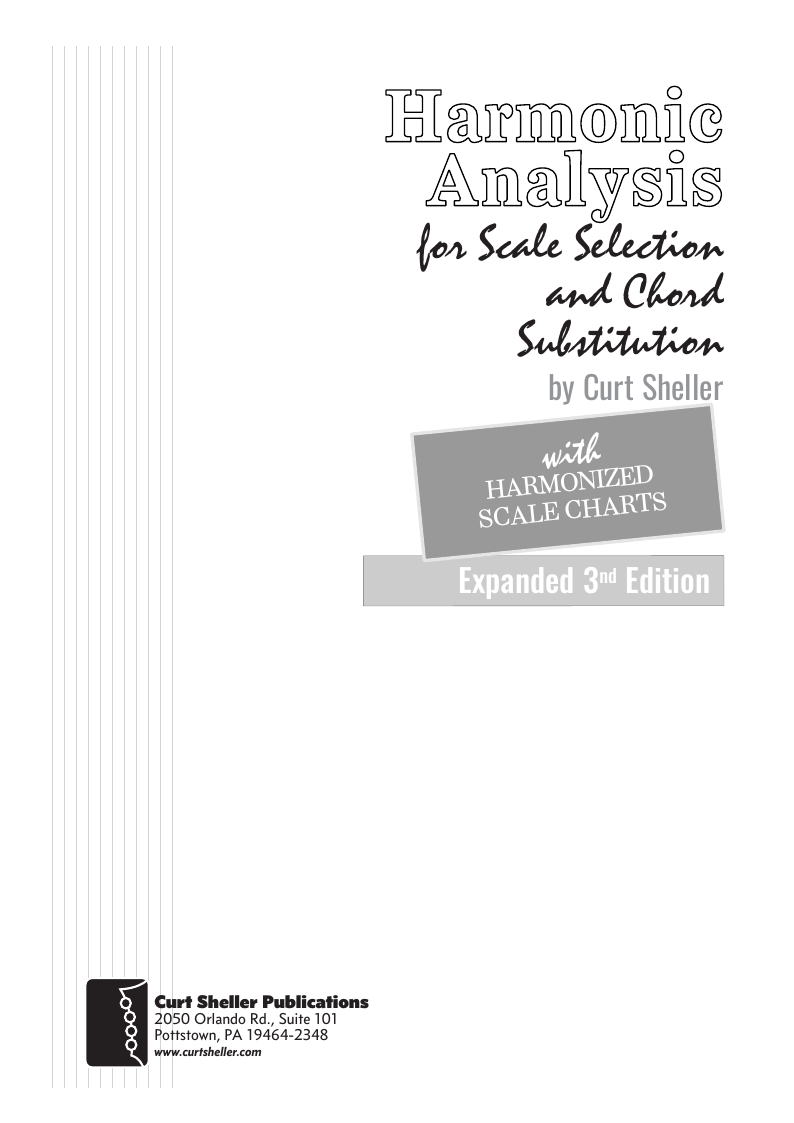
Harmonic Analysis ( HA ) is the process used to determine the harmonic function of chords within a chord progression. A chord progression is defined as a sequence of chords, each chord has a root and has a particular chord type. The relationship of a chord's root to a scale determines its function within that scale's tonality. Once a chord's function is identified, scale selections along with chord and scale substitutions can be made. This process is called Root Movement Analysis ( RMA ). This series of lessons are extracted from my book for use with individual private and on-line students. Each lesson directly corresponds the chapters in my book Harmonic Analysis for Scale Selection and Chord Substitution by Curt Sheller (me).
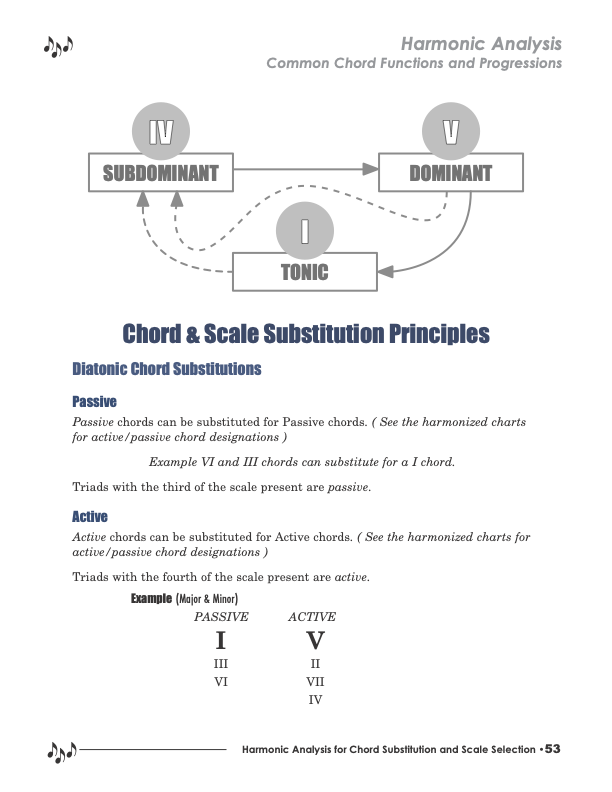
A "Substitution" is when a chord replaces or is used in addition to an existing chord. Chords can have an active or passive quality to them. Active chords tend to be restless and want to move on to other chords. Passive chords tend to offer a feeling of rest and resolution. This cycle of active and passive chords are what gives chord progressions their feeling of movement.
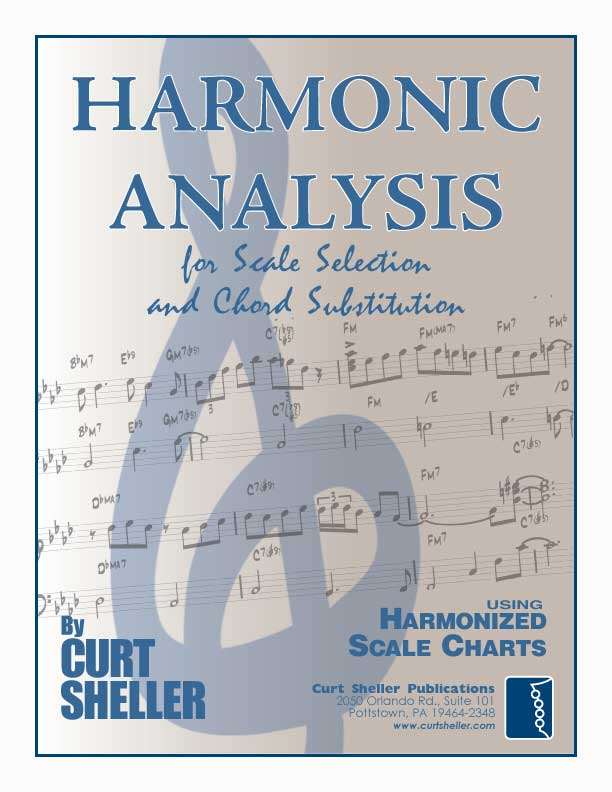
Harmonic Analysis is the understanding of the functional sequence of chords. It is the process used to analyze the harmonic structure of a progression, song or composition. This analysis is then used to make scale selections for improvisation and chord substitution.
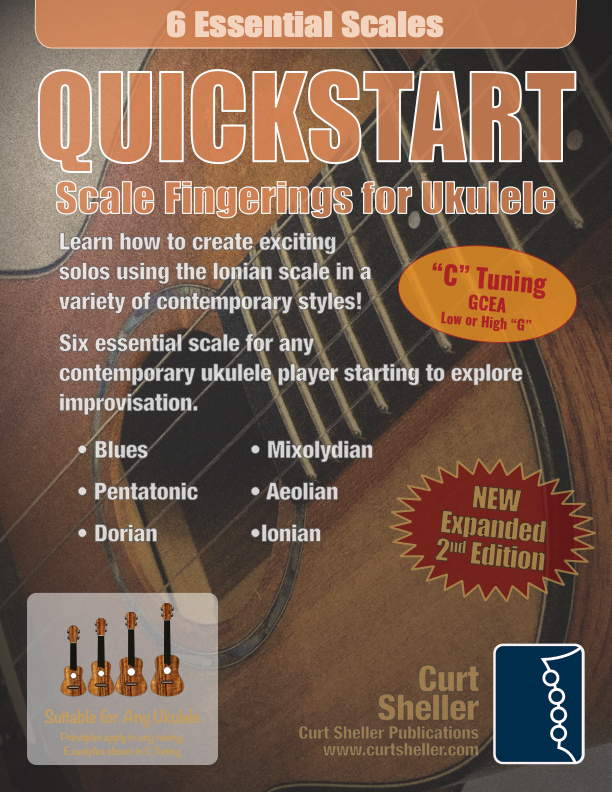
Learn to create exciting solos in a variety of contemporary styles! Scales are used to improvise, create melodies and riffs. With broad knowledge of the essential scales that are used in contemporary music and a mastery of the ukulele's fingerboard and fingering principles, you're well on your way.


return in your investment)—it is this— learning the
f*ckingnotes of your OWN instrument. Sorry for the tough talks—but it is sooooo true!

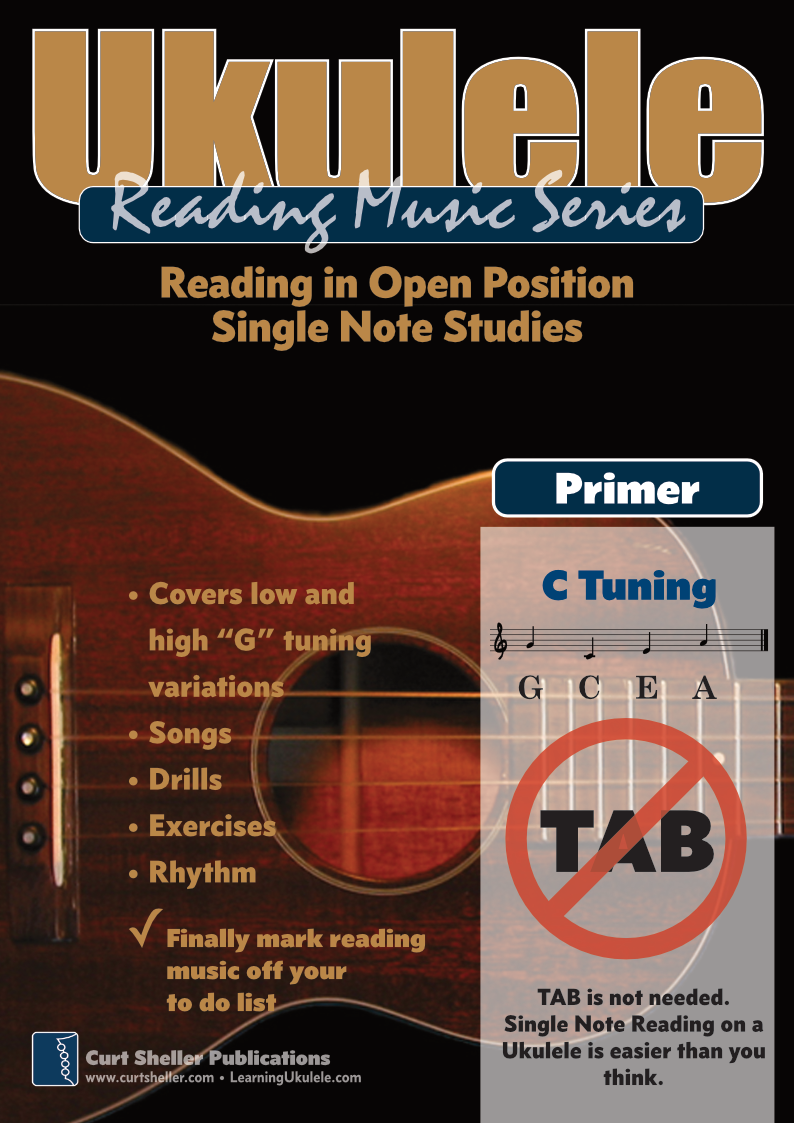
Learn to read single note melodies in the first/open position is a lot easier than you might think. Book: Ukulele – Reading Music Series – Primer
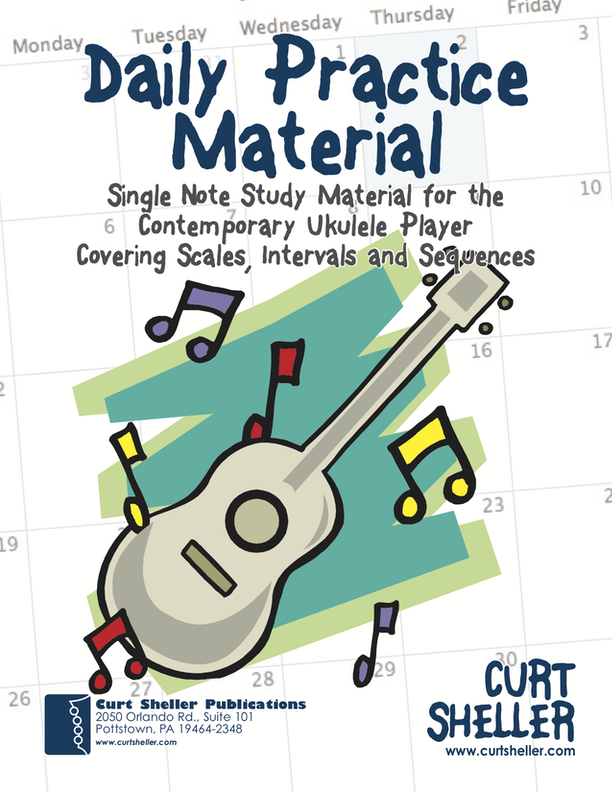
An organized collection of daily practice and reference material for the contemporary ukulele player for developing the vocabulary and knowledge necessary for single note playing. Book: Daily Practice Material for the Contemporary Ukulele
Checkout the Books & Reference Charts for additional Handy, Dandy Reference Charts.
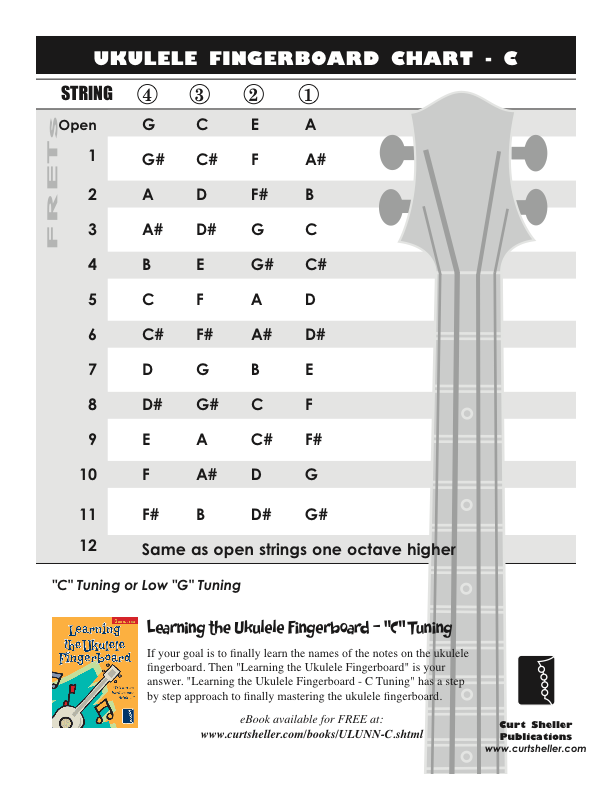
Ukulele Fingerboard Chart for C Tuning, Low or High G – G C E A
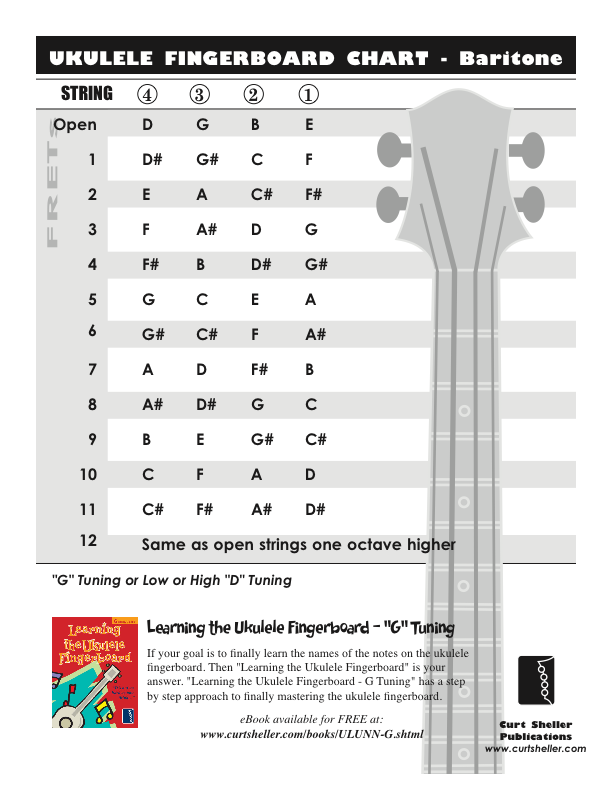
Ukulele Fingerboard Chart for G Tuning, Low or High A – D G B E
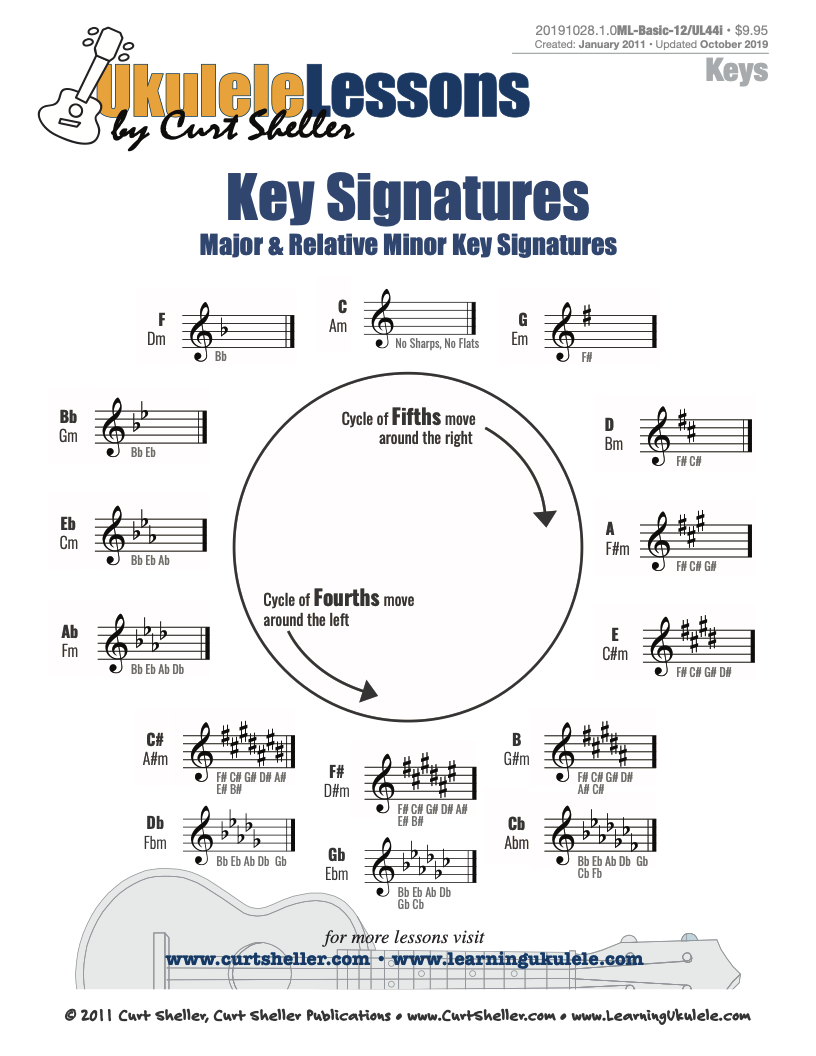
A handy reference chart of all 15 major and relative minor key signatures. US Letter 8.5 x 11 sized (ANSI-A) , A4



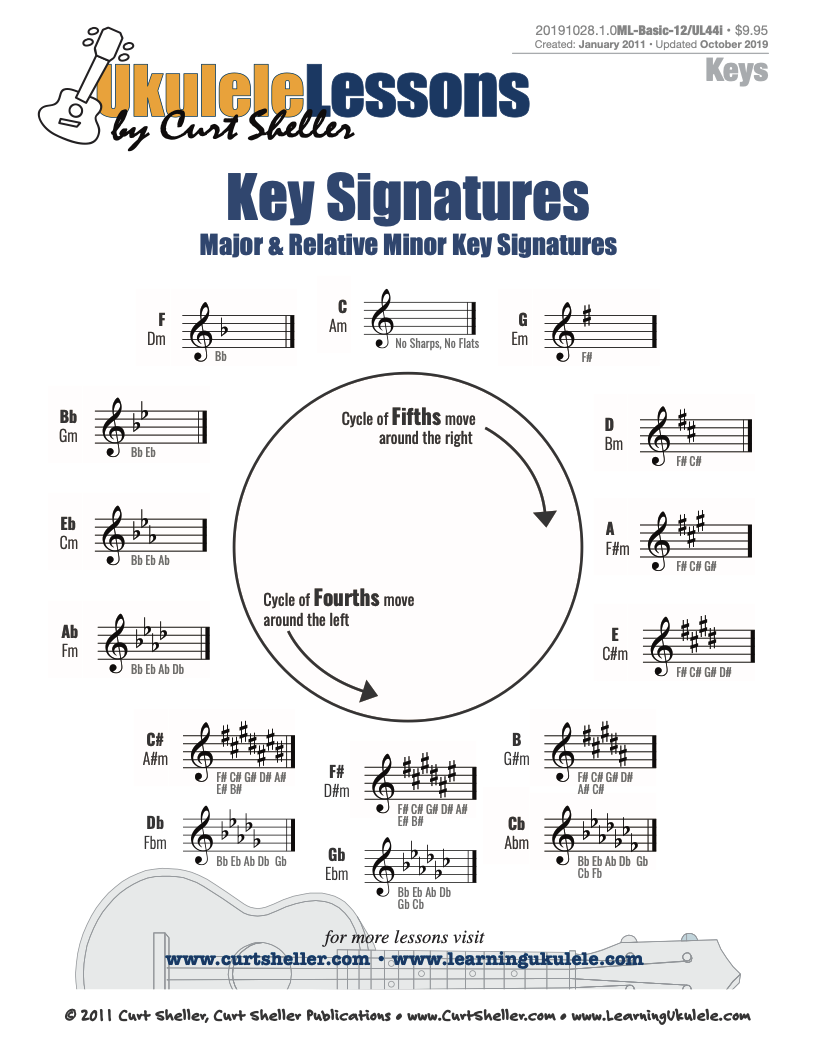
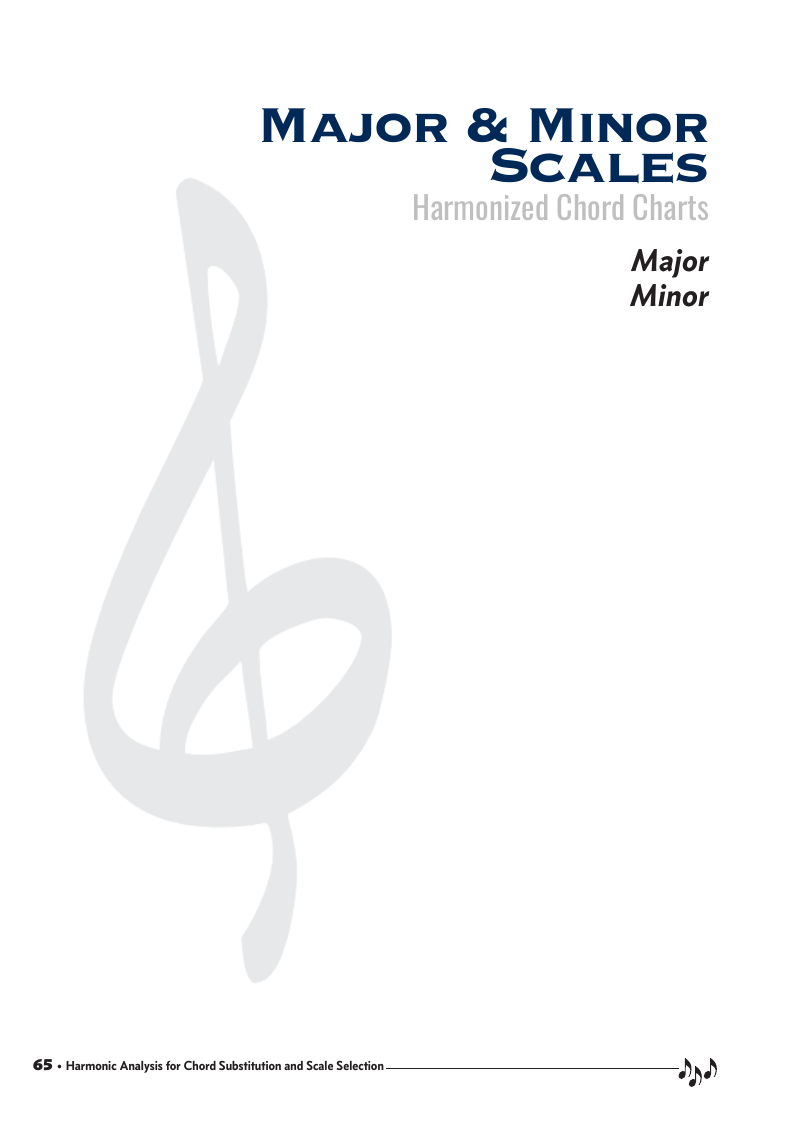
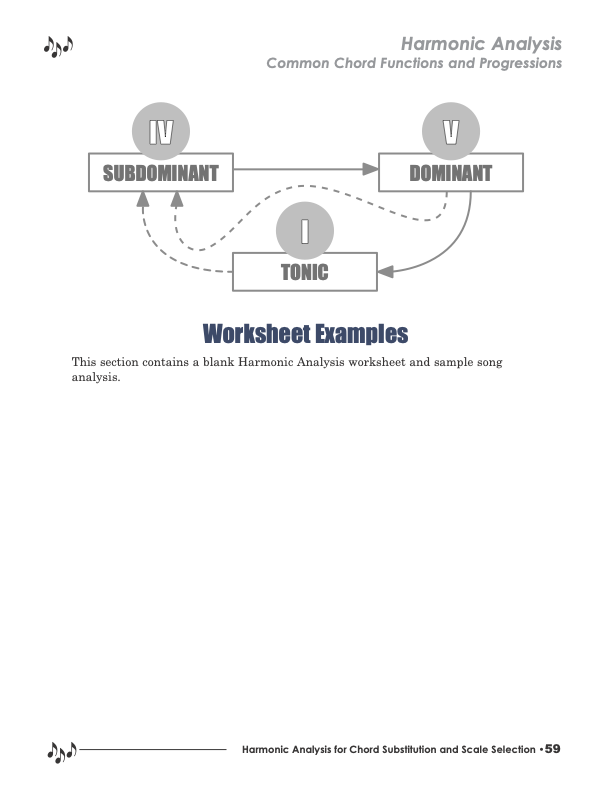
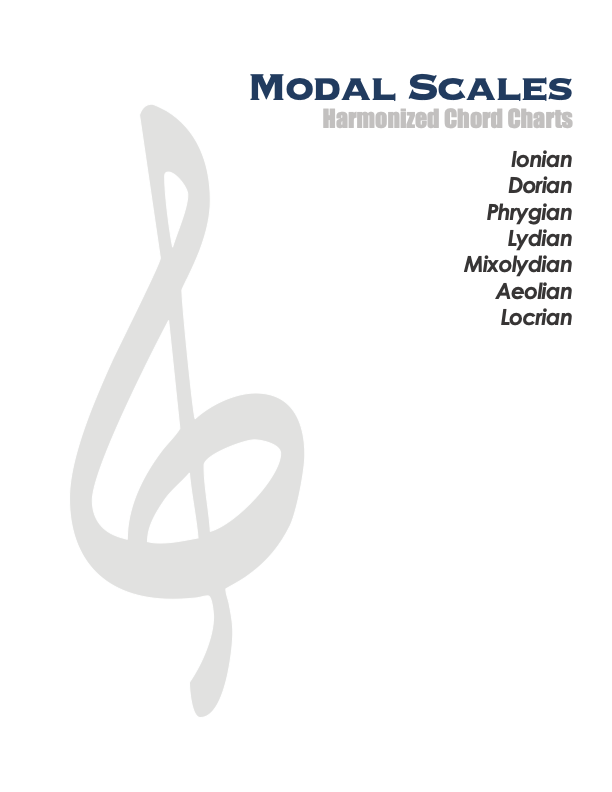
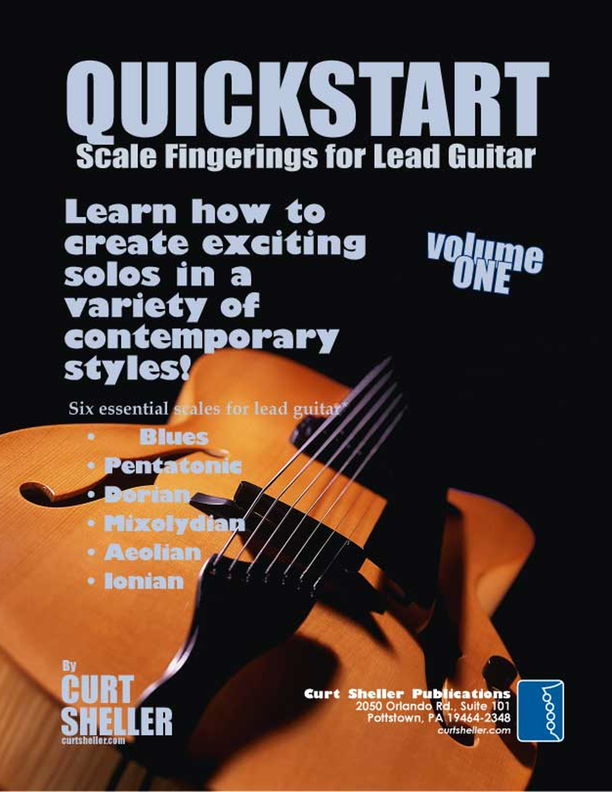
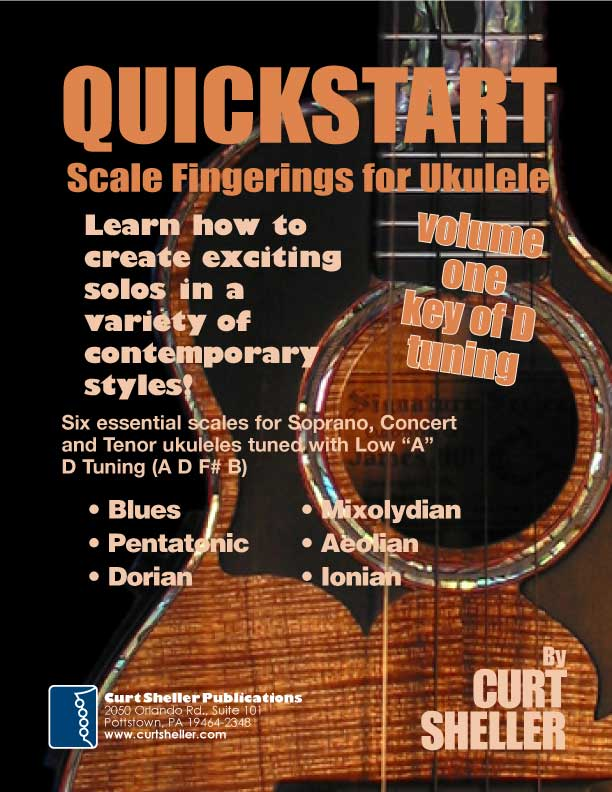


.jpg)